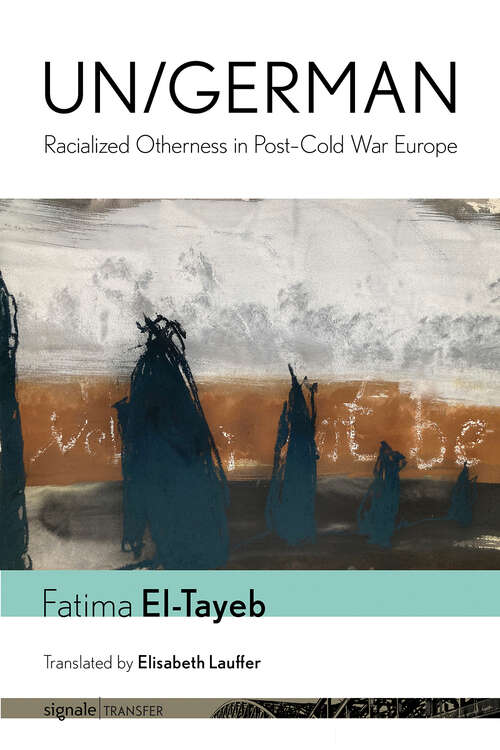
Un/German: Racialized Otherness in Post–Cold War Europe (signale|TRANSFER: German Thought in Translation)
European history
Synthetic audio, Automated braille
Summary
Un/German is a powerful intervention in the ongoing debates over national identity, migration, and collective memory in Europe. Against the backdrop of the 2015 "refugee crisis," Fatima El-Tayeb argues that Europe's internal fractures were deflected through recurring crises, casting racialized… populations as the external menace against which the continent could unite. First published in German in 2016, the book critically examines how Germany's reaction to the arrival of nearly one million refugees—initially framed as a "culture of welcome" but one that rapidly turned to hostility—was not an anomaly but part of a broader European pattern.Drawing on public memory and its material expressions in post–1989 Germany, Un/German brings into sharp relief the disparities in how Europe remembers its fascist, socialist, and colonial pasts. El-Tayeb highlights Black, Muslim, and Roma artists and activists who disrupted public commemorations intended to reinforce dominant narratives, arguing that these disturbances brought to the fore unresolved tensions in German collective memory. In doing so, El-Tayeb reveals the limits of Europe's self-conception as pluralistic and progressive, while also opening the door to new, more inclusive ways of imagining European identity.